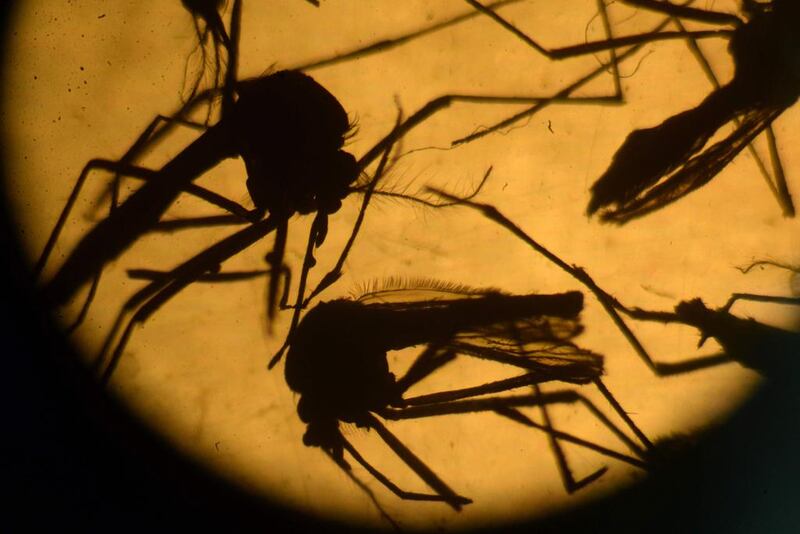RIO DE JANEIRO // Brazil is not sharing enough samples and disease data to let researchers determine whether the Zika virus is linked to the increased number of babies born with abnormally small heads, United Nations officials said.
It comes as Spain reported yesterday that a pregnant woman who had returned from Colombia had been diagnosed with the Zika virus, in the first such known European case.
A lack of data is forcing laboratories in the United States and Europe to work with samples from earlier outbreaks and is frustrating efforts to develop diagnostic tests, drugs and vaccines.
Scientists said that having so little to work with is hampering their ability to track the evolution of the virus.
One major problem appeared to be Brazilian law. It is illegal for Brazilian researchers and institutes to share genetic material, including blood samples containing the Zika and other viruses.
“It is a very delicate issue, this sharing of samples. Lawyers have to be involved,” said Dr Marcos Espinal, director of communicable diseases in the World Health Organisation’s regional office in Washington DC.
Dr Espinal said he hoped the issue might be resolved after discussions between the US and Brazilian presidents.
He said the WHO’s role was mainly to be a broker to encourage countries to share data.
“Waiting is always risky during an emergency.”
Last May, as the first cases of Zika in Brazil were emerging, president Dilma Rousseff signed a law to regulate how researchers use the country’s genetic resources.
But the regulatory framework has not yet been drafted, leaving scientists in legal limbo.
“Until the law is implemented, we are legally prohibited from sending samples abroad,” said Paulo Gadelha, president of the Oswaldo Cruz Foundation, Brazil’s premier state-run research institute for tropical diseases.
“Even if we wanted to send this material abroad, we can’t because it’s considered a crime.”
The ban does not necessarily mean foreign researchers cannot access samples. Some were shared with the US, including tissue samples from two newborns who died and two foetuses recently examined by the Centres for Disease Control and Prevention. But a US official said that was not enough to help determine whether Zika is behind the recent jump in the number of congenital defects.
Ben Neuman, a virologist at Reading University in England, said thousands of samples – or hundreds at a minimum – were needed to track the virus and determine how it’s changing.
* Agencies





